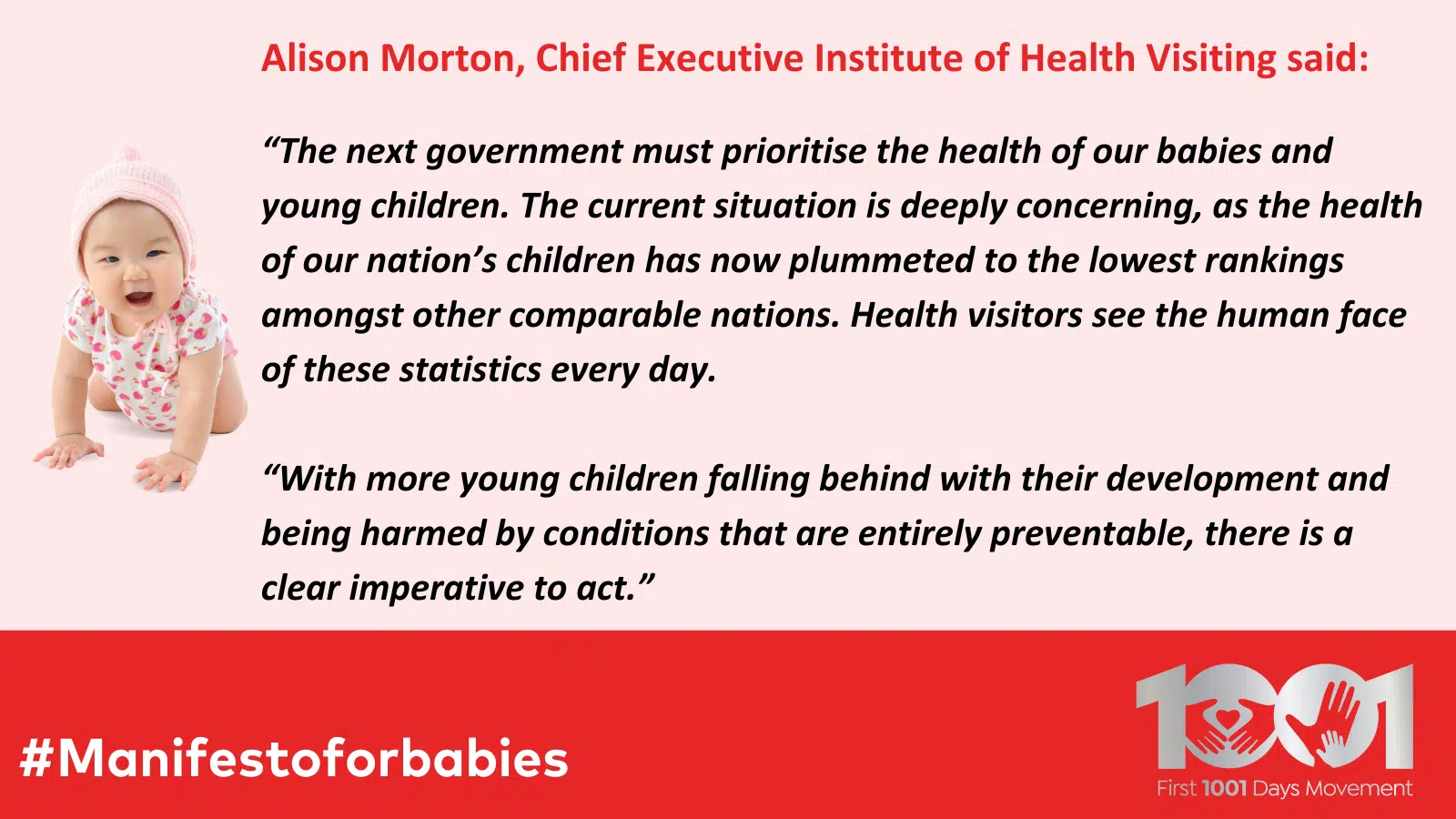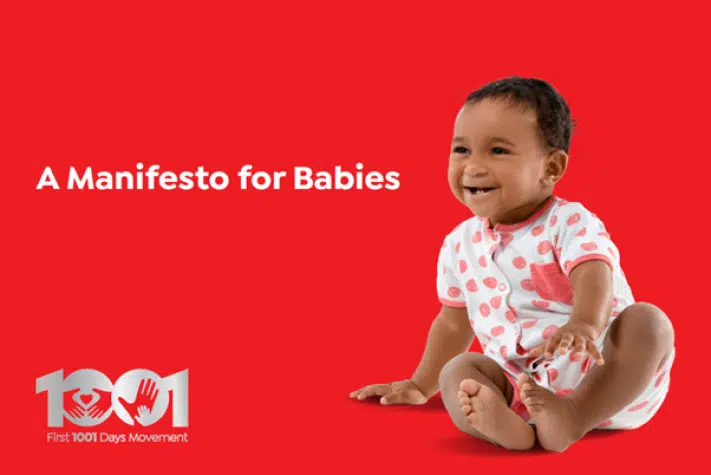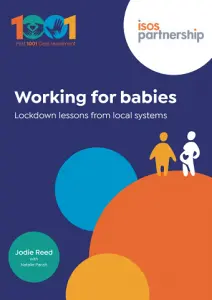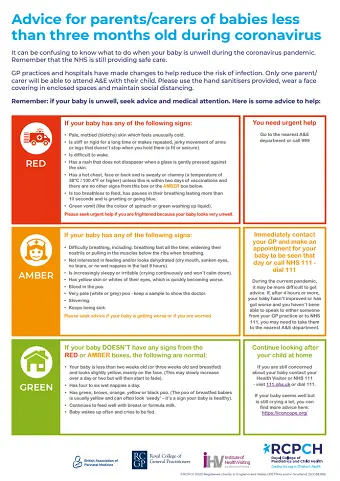Today, the First 1001 Days Movement, a coalition of over 200 charities and professionals, including the Institute of Health Visiting, published a ‘Manifesto for Babies’. The manifesto calls on all political parties to invest in prevention, demanding urgent support for vulnerable babies amid growing concerns about the health and welfare of Britain’s youngest.
The appeal follows last month’s warning from the Academy of Medical Sciences that the UK is “betraying” young children, by neglecting their essential physical and mental health needs.
The charities warn that a failure to act now will create “a ticking time bomb” that hits when children start school. The manifesto is published ahead of what is set to be the most crucial election for babies.
The manifesto recommendations include:
- An ambitious cross-government strategy to support babies’ healthy development, with a dedicated Cabinet Committee reporting directly to the Prime Minister, to ensure cohesive action.
- Sustainable funding for preventative services, including health visiting, and extending funding for the ‘Start for Life’ programme.
- Action to tackle health inequalities so that all babies have a good start to life – including targeted approaches to reduce inequalities and a commitment from the next government to tackle child poverty.
- Develop a workforce plan for children‘s social care and the early years, alongside delivering the NHS Long Term workforce plan.
- A rapid review of the tax and benefits system for parents and carers of under-2s, with increased paid paternity and parental leave, alongside training nursery staff on infant mental health
Local services are worried by the worsening health of the babies and young children they see:
- Toddler development in England has declined over the last five years, with 1 in 5 two-year olds now below the expected level of development.
- Slow development impacts on school readiness, with latest data showing 2.5 hours of teacher time is lost every day because children are not ‘school-ready’, and one in four children starting reception are not toilet trained.
- The charities warn an estimated 10% of babies in this country are living in fear and distress because of disturbed or unpredictable care, and that one in five babies is missing the mandatory one-year old health visitor check where problems can be picked up early.
Evidence shows that the first 1,001 days of a child’s life, from pregnancy to age two lay the foundations for a happy and healthy life. The support and wellbeing of babies during this time is strongly linked to better outcomes later in life, including educational achievement, progress at work, physical and mental health.
Commenting on the “Manifesto for Babies”, Alison Morton, CEO Institute of Health Visiting, said:
“The next government must prioritise the health of our babies and young children. The current situation is deeply concerning as the health of our nation’s children has now plummeted to the lowest rankings amongst other comparable nations. Health visitors see the human face of these statistics every day. With more young children falling behind with their development and being harmed by conditions that are entirely preventable, there is a clear imperative to act.
“We urge all parties to listen to the collective voice of the First 1001 Days Movement coalition of more than 200 organisations captured in this manifesto. In particular, their call for urgent investment in health visiting to ensure that all babies and young children get the support that they need to thrive and to restore this vital safety-net for the most vulnerable.”

Keith Reed, Chief Executive at The Parent-Infant Foundation, said:
“Ignoring the needs of vulnerable babies leaves a ticking time bomb that hits when children start school. With the electoral battleground heating up, crucial services for babies hang in the balance. Start for Life cannot be allowed to suffer the same fate as Sure Start. As babies can’t vote, it’s crucial that we speak up for them. Investing in babies’ wellbeing is not only the smart thing to do from a policy perspective, it’s a moral imperative.”
About the Manifesto for Babies
The Manifesto for Babies is published by the First 1001 Days Movement – a coalition of over 200 charities and professionals who believe that babies’ emotional wellbeing and development matters. Our members deliver a wide range of services that protect and support vulnerable babies and their families. These recommendations for UK policymakers are based on a survey of the First 1001 Days membership.
The Manifesto for Babies was developed by a Steering Group comprised of NSPCC, the National Children’s Bureau, Home-Start UK, the Institute of Health Visiting, the Anna Freud Centre, AiMH-UK, the Association of Child Psychotherapists, SANDS, Blackpool Centre for Early Child Development, Best Beginnings, Future Men, Approachable Parenting, Fatherhood Institute, Oxpip, the Parent-Infant Foundation and elected individual experts; Professor Eunice Lumsden, Bethany Boddy and Emma Carey.






